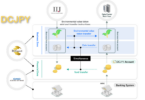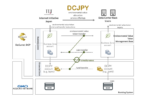On June 28th Australian blockchain firm Power Ledger announced its partnership with Clearway Energy Group to build Renewable Energy Certificate (REC) trading software. California-based Clearway is a major renewable energy developer and operator.
In most U.S. states electricity firms have mandatory clean energy targets. It is common practice for them to trade RECs to ensure those targets are met, as the certificates count as proof of the electricity’s renewable origin.
The growing REC market is said to be worth over $3 billion per year. However, trading the certificates can be complicated and challenging to track.
Power Ledger’s Executive Chairwoman and co-founder Dr Jemma Green said: “Power Ledger is applying our proprietary technology to the evolving market for trading digital energy commodities. This is a market that’s often criticized for being opaque, but blockchain technology will make it more efficient, secure, and provide greater transparency.”
Indeed, using blockchain to store and verify documents which provide proof is a match made in heaven. An immutable ledger would be able to prevent cases of fraud and show a chain of ownership for efficient auditing.
Since Clearway runs many solar and wind plants across 25 states, the platform will be able to store the certificates from the moment the energy is generated.
“We will be able to track RECs on a blockchain ledger system from the point of creation, sale and transfer to the buyer, through to the point of retirement of the certificate and the annual sustainability audit,” confirmed Dr. Green.
Monique Menconi, the VP of Asset Management at Clearway, stated: “We believe blockchain trading technology can significantly improve the efficiency of the market for RECs in the U.S. by linking transactional functions within a common platform.”
Power Ledger is running projects in Thailand, Japan, India, its native Australia, and, more recently, Austria. Announced last month, the firm will enable solar energy trading in the city of Graz.
Power Ledger’s team includes advisor Dr Bill Tai and affiliate Dante Disparte, both Havard graduates. Interestingly, Dr Tai is a director at blockchain software and hardware firm Bitfury, which is a partner of Disparte’s insurance broking and advisory company Risk Cooperative.
Another of Disparte’s roles is leading policy and communications for Facebook’s blockchain initiative Libra Association.
As the world moves towards renewable power sources, new technologies are being used to manage the shift. A primary characteristic of this shift is decentralization, making blockchain a clear choice.
In June the Energy Web Foundation launched its public blockchain with the backing of over 100 firms such as Shell and GE. The U.S. Dept of Energy has also awarded a grant to blockchain startup Xage to secure the nation’s growing electricity grid.






